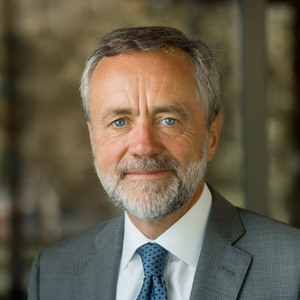About 60 of us are gathered in the Majesty Plaza ballroom, a chandeliered hall in a downtown Shanghai hotel. I’m writing this column from that room, after eagerly taking notes as I listened to Christian leaders from China and the United States talk about the gospel at work transforming lives.
About 40 years ago when I was in elementary school, I didn’t know a lot about China. “Don’t dig that hole too deep in the yard,” parents would admonish my friends and me,“you might hit China.” I guess I did know a few things. China was on the other side of the world, Americanized Chinese food tasted wonderful, and President Richard Nixon was breaking ground traveling to Peking to meet with Mao Zedong.
I also knew China was “closed.” Around that time I recall reading the nail-biting stories in Christian comic books of Brother Andrew and others smuggling Bibles behind the “Bamboo Curtain,” Bibles banned by the sponsors of the Cultural Revolution. The missionaries who’d been at work in the early part of the 20th century had long been evicted. Bibles discovered were destroyed. Those found talking about Jesus or covertly sneaking in Christian literature risked what I understood then as tortuous imprisonment for years on end.
If someone told me, as an 11-year-old boy, that one day I’d be in Shanghai with Chinese Christian leaders talking openly about the Bible and the love of Christ, I would have thought they were from the moon, or at least the other side of the world.
But God is on the move in ways that defy our imaginations. I began to see the thaw through the eyes of my wife, Paula, who taught for a year in China during the early 1990s. Returning several times since, the changes are startling. What I witnessed in November underscored the change.
For a few days, a group of about 30 Christian leaders from the United States and about the same number from China listened to each other in a John 17 kind of way, the way that we are called to be one in Christ. We talked honestly about the struggles and perceptions of the past. We broke bread together, prayed together, listened to Scriptures and talked about the best days still before us if we can work in partnership with each other.
We’ve come a long way since I was in elementary school.
One evening I sat beside Pastor Li, the leader of a church of thousands in Nanjing. Translated to English, it’s called “Don’t Worry Church.” I found that name an unintended play on what had been years of worry-inducing pressures on Christians.
Pastor Li shared with me the story of his family hiding their one Bible during the 1960s, discretely tucking it away in any of seven different places. He was born in 1965, and when he was eight days old his parents dedicated him to the Lord for Christian service. A few years later, he made a decision to live out the prayer of his parents. But during his childhood, the Bible was literally a hidden treasure. He recalled the day soldiers stormed into his house and physically beat his father — blind from the age of 1 — demanding he turn over their family Bible so it could be destroyed. Pastor Li’s father took the blows but did not relinquish the Book.
Today, that family Bible is on display at a Beijing exhibit symbolizing the bravery of families who protected God’s Word through the years of censorship.
In the few decades since I was reading the Brother Andrew comic books and Pastor Li was reading banned copies of Scripture, the climate in China has changed. What was once the closed, bamboo-curtained nation is now the leader in Bible production, not just for China but for the world. I toured Amity Printing Co. in Nanjing, a vast complex where Bibles are printed and distributed. For the past few years this publishing company has been printing 20 million Bibles per year, and last year had a big party when it printed its 100 millionth Bible.
What was remarkable about this trip was seeing a new generation of Christian leaders, many of whom have never met, coming together as one in Christ and dreaming of new partnerships for the gospel. The days of isolation, competition and going at it alone are drawing to a close. What we can do together is far more than what we can do alone. Helping cultures have access to and engage the Scriptures is still at the heart of Biola, and for this reason my heart was warmed by what I saw in China.
The spirit of Asian partnerships has also been on the hearts of Biola students. This year, Biola’s Student Missionary Union — the oldest and largest student-led missions organization in the world — is partnering with The Seed Company to launch The India Project. This project aims to translate 24 key Bible stories into several unreached native languages of the Indian people. These students have taken up the challenge to raise over $100,000 to fund this ambitious project.
We want to be a part of and in partnership with like-minded Christian communities globally committed to bringing the Word of God and the love of Christ to the nations. And we cannot do this alone.
Barry H. Corey is the eighth president of Biola University. Visit his office online at www.biola.edu/president, on Facebook at facebook.com/presidentcorey and on Twitter at twitter.com/presidentcorey.
 Biola University
Biola University
.jpg)

